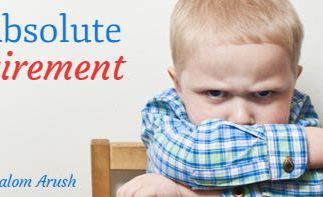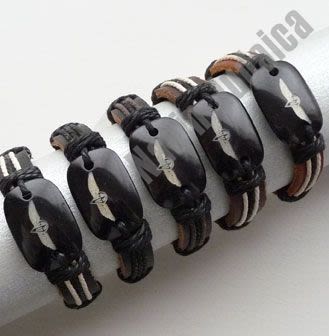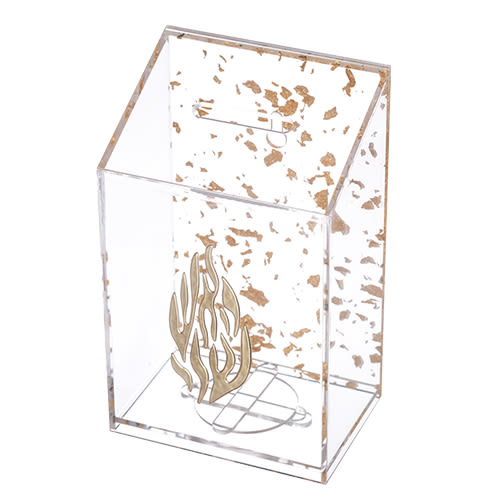
Don’t Miss the Opportunity
Real wisdom is being able to actualize hidden opportunities and turn them into big successes. Ironically, the worse the situation, the bigger the potential for big gains.

One of the biggest differences between a successful businessman and someone who continues to lose out, is being able to identify and take advantage of business opportunities. The Gemara teaches us that a wise person is someone who understands what will be borne from specific actions or circumstances. That means that such a person has the ability to see in the current reality the potential which is hidden “between the lines” and actualize it into success. Ironically, the worse the current situation, the more potential there is for exponentially higher profits.
As parents, we also have opportunities like this with our children, when we can use their inevitable mistakes and failures as incredible opportunities for growth.
Don’t Kick Him When He’s Down
Although parents want to hear only good reports about the kids and have kids that behave perfectly, we all know that this simply isn’t the case. Still, when it happens, we react as if it’s some sort of unwelcome surprise and respond according to the feelings that the negative behavior creates in us and the stress we feel.
However, if we knew how much good can be revealed from the negative behavior and mistakes of your children – you would relate to this behavior in a totally different manner.
Let’s use an example to illustrate this concept. Take a mother who generally tells her son that he is a good, smart, and holy boy. One day, she gets a call from his teacher, and is told that her son behaved in a totally inappropriate manner. The child is terrified of his mother’s response, and the screaming indeed comes quickly: “What a stupid, foolish child! You are such a bad boy!”
Between the tears, the child tries to come to grips with himself. What does his mother really think about him? Which version of himself – smart or stupid, good or bad – does she really believe that he is? He quickly decides that since the negative image came with such force, clearly that must be what she really believes about him. After all, the positive words came without such fire and conviction… Therefore, the insults and criticism are given much more weight in his mind, and he throws out and completely forgets all the compliments and encouragement he received up to that point. Clearly, his mother really believes that he is a foolish, bad boy…
Hence, we see that our response to the child’s inevitable incorrect behavior is what actually determines his self-image – and in those fragile moments, we can totally destroy everything that we worked so hard to build. If that isn’t distressing enough, it also emotionally scars the child in a deep and lasting way. As an aside, we also can understand the pressing need to speak those positive and encouraging words with deep conviction and true emotion.
The Good is Even More Powerful
Although it’s important for you to understand how much is lost by reacting negatively to your child’s bad behavior, this isn’t what I really want to focus on. I want to focus on how much you stand to gain by using these opportunities appropriately, and cashing in on the wealth of good that can be acquired in them.
The moment that a child is anxiously awaiting your response, you must be extra cautious to carefully weigh your words. Right now, you have a precious educational opportunity of the first order. This is the critical moment when either you forfeit all of your investments, or win big – by either educating your child with love, or simply unleashing ruin and destruction on your home with your own unchecked emotions.
First, begin by thinking about what your child is going through in these moments. He is going through what we all go through when faced with the reality that we made a gigantic mistake – and it ain’t pretty. We are all torn between the negative self-image that the Evil Inclination paints for us in an attempt to make us despair of our goodness and potential, and the positive input of emuna, daat (holy knowledge), and the voice of the tzaddikim which tell us that each of us is precious and important, innately good, and inherently strong and able to stand down every trial and achieve every height, if we would only just not give up on ourselves before we even start.
Your child is no different, and he experiences the same tumult, torn between his belief in himself and despair – except that he lacks the capability to choose the good on his own. Without your support, he will despair of himself and lose his self-esteem and positive self-image.
Even more, children are so fragile, that these events can turn into “breaking points.” Such a child grows up “crooked” and weak and becomes warped, instead of straight and strong.
Big Opportunity – Or Big Loss
Now that we’ve considered the side of the child, let’s return to your reality. Whatever the child has done, you have to consider your options:
Break Down the Child with Words. If you break him down right now, you are pushing him into a dangerous pit with your own hands. You literally become the messenger of the Evil Inclination to destroy your child’s emotional foundations. I am sure this is not a role that you want to fulfill!
Build the Child Up. Your other option right now is to remind the child of the messages that you yourself have been learning – the truth of believing in yourself, of how much Hashem loves you, and how all you have to do is start over with happiness and repent, which includes praying and trying harder in the future – then you’ve now become the messenger of the tzaddikim. You are now building the child for life, because in his weakest moment, you supported him. You put the truth of believing in himself that much deeper into his heart and psyche and you give him emotional stability and resilience for the rest of his life.
This is your opportunity to tell your child: “I know that you are a good child with a holy soul. You did something bad – but that isn’t the real you. You aren’t happy about what you did. You are a good child who made a mistake that your Evil Inclination pushed you to do. You really didn’t want to do this, and you wish you didn’t. Know that I love you and I still believe in you, even now – and so does Hashem. I know that you can do better next time. Don’t believe the Evil Inclination telling you that because you did bad, you are bad. He is a liar! You have incredible power, and you can overcome your Evil Inclination easily, if you’ll just do teshuva and ask Hashem to help you.” Your words must be in this spirit.
Take note – you aren’t telling the child that you are happy about what he did wrong, or that he really did something good. What he did was wrong, and you aren’t accepting such behavior under any circumstances. Your goal is to instill in the child the belief that he is good, and he made a mistake against his real nature and did this bad thing. You have to help the child distinguish between the bad thing he did, which is totally separate from him, and does not mean that he is intrinsically bad.
If you will react in this manner, you gain exponentially. It isn’t possible to explain how much the child switches from being terrified of punishment, to being overwhelmed with love and joy at the surprise reaction. The child opens up, and these important and encouraging messages are soaked up and taken into the depths of his heart and soul. Now, he really believes what you told him before, that he is good and holy, and his self-image is strengthened. He leaves this experience much stronger, and with a deeply rooted belief in himself and his goodness that will stand for him for the rest of his life.
Even more, the child now feels that you are on his side. You have no idea how much strength this gives the child, and how much it strengthens your relationship.
Your entire job is to build your child emotionally, not just physically. However, you cannot give to your child, what you yourself don’t have. You must first work to belief in yourself. Then, you can truly believe in your children as well, and stand at their side and strengthen them in their weakest hour.
It is specifically at those weakest moments that you have the greatest opportunity to build them a strong and stable emotional foundation, and enable them to grow and flower into strong, healthy and emotionally stable adults.













Tell us what you think!
Thank you for your comment!
It will be published after approval by the Editor.